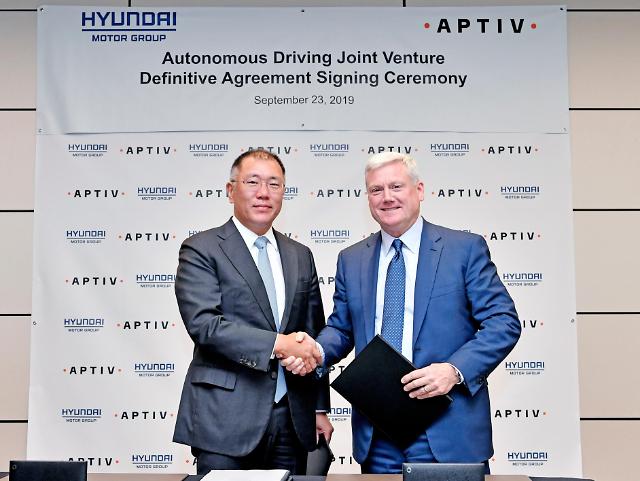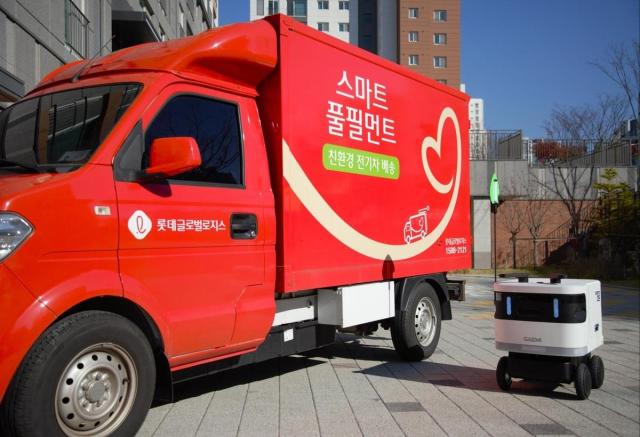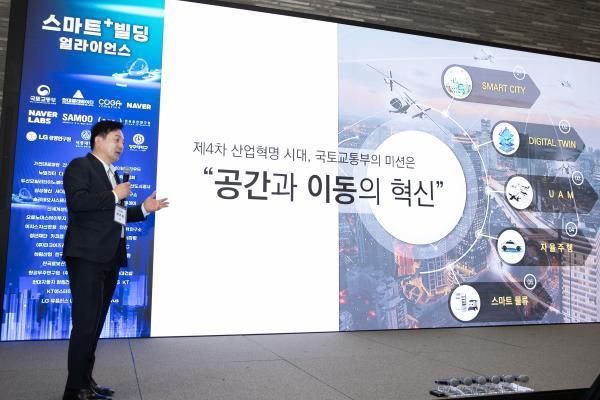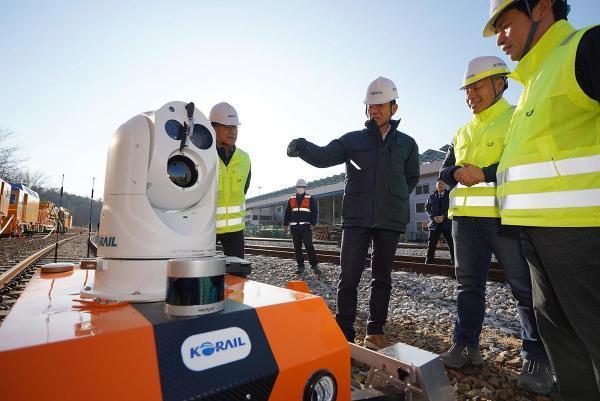
[Courtesy of Hyundai Motor Group]
The two companies said in a joint statement that the joint venture will advance the design, development and commercialization of level 4 and 5 autonomous technologies. Level 4 autonomous vehicles require no input from drivers if there is no dangerous situation and level 5 vehicles do not require human attention.
The joint venture will begin testing fully driverless systems in 2020 and have a production-ready autonomous driving platform available for robot taxi providers, fleet operators, and automotive manufacturers in 2022, the statement said.
"The goal is to mass-produce self-driving technology in earnest by 2024," Chung Eui-sun, executive vice chairman of the Hyundai auto group, told a separate press event in New York after he attended a signing ceremony. "If our software solutions are excellent, we can supply them to other carmakers as well," Chung said, giving a conservative prediction that the era of autonomous driving would come around 2030.
Hyundai and Aptiv will equally share the joint venture, valued at $4 billion. Karl Iagnemma, president of Aptiv Autonomous Mobility, will lead the joint venture headquartered in Boston. The Hyundai auto group will invest $2 billion in the joint venture, including $1.6 billion in cash and $400 million worth of intellectual property and engineering services.
Aptiv, headquartered in Ireland, is a technology company which conducted the first coast-to-coast automated drive in the United States in 2015. "This partnership further strengthens Aptiv’s industry-leading capabilities in the development of advanced driver assistance systems, vehicle connectivity solutions, and Smart Vehicle Architecture," said Aptiv CEO Kevin Clark.
Chung said that hydrogen fuel cell vehicles are suitable for autonomous driving as electricity consumption increases rapidly in self-driving systems. "Hydrogen electric vehicles that can operate long distances are a platform suitable for autonomous driving."
While other global carmakers focus on electric vehicles using lithium-ion cells, Hyundai has touted hydrogen fuel as an alternative to solve global problems such as pollution and restore resource depletion because of its eco-friendly characteristics.
It was the latest of a series of Hyundai's strategic investments in promising domestic and foreign start-ups. In June, the auto group made a strategic investment into Aurora Innovation, an American autonomous vehicle technology company, to put robot taxis into test operation by 2021 in smart cities by using NEXO, a hydrogen fuel cell electric vehicle.
Hyundai Mobis, the group's car parts subsidiary, has accelerated the development of sensors, cameras and parts for autonomous vehicles and infotainment. The company has partnered with Yandex, a Russian company specializing in Internet-related products and services, to develop systems for a high level of autonomous driving that can be used for driverless taxis.
Copyright ⓒ Aju Press All rights reserved.



